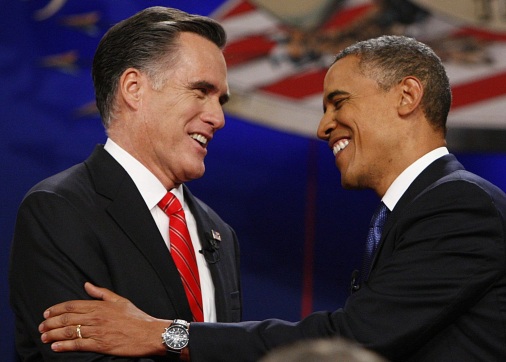In Monday night’s presidential debate, President Obama tried to differentiate his policy towards Iraq with that of Governor Mitt Romney’s, but was caught in the middle of his campaign’s most distorted issue.
 President Obama has consistently claimed in this campaign that he “ended the war in Iraq.” But this couldn’t be further from the truth: his administration tried desperately for months to establish a new Status of Forces Agreement in Iraq which would have left thousands of US troops there, perhaps indefinitely. Only when this effort failed, did Obama fall back on the Bush administration’s policy of pulling all troops out in 2011.
President Obama has consistently claimed in this campaign that he “ended the war in Iraq.” But this couldn’t be further from the truth: his administration tried desperately for months to establish a new Status of Forces Agreement in Iraq which would have left thousands of US troops there, perhaps indefinitely. Only when this effort failed, did Obama fall back on the Bush administration’s policy of pulling all troops out in 2011.
Romney correctly insisted President Obama had the same preference as he did to sign a new Status of Forces Agreement on Iraq, leaving thousands of US troops there, but failed to get Baghdad to agree to it.
“With regards to Iraq,” Romney said, “you and I agreed I believe that there should be a status of forces agreement.”
Obama balked and tried to deny this accurate charge, because it conflicted with his attempts to claim he ended the war in Iraq, and to highlight Romney’s recent statement that the US should still have up to 20,000 troops in Iraq.
“What I would not have done is left 10,000 troops in Iraq that would tie us down,” President Obama claimed, in direct contradiction to his administration’s efforts toward the end of last year.
“I’m sorry,” Romney said, “you actually — there was a — there was an effort on the part of the president to have a status of forces agreement, and I concurred in that, and said that we should have some number of troops that stayed on. That was something I concurred with…”
This was just one among many foreign policy issues that the two candidates fundamentally agreed on. Obama and Romney quibbled on every issue, as they did – mostly dishonestly – on Iraq. But on every major issue there was no discernible difference in actual policy between the two.


